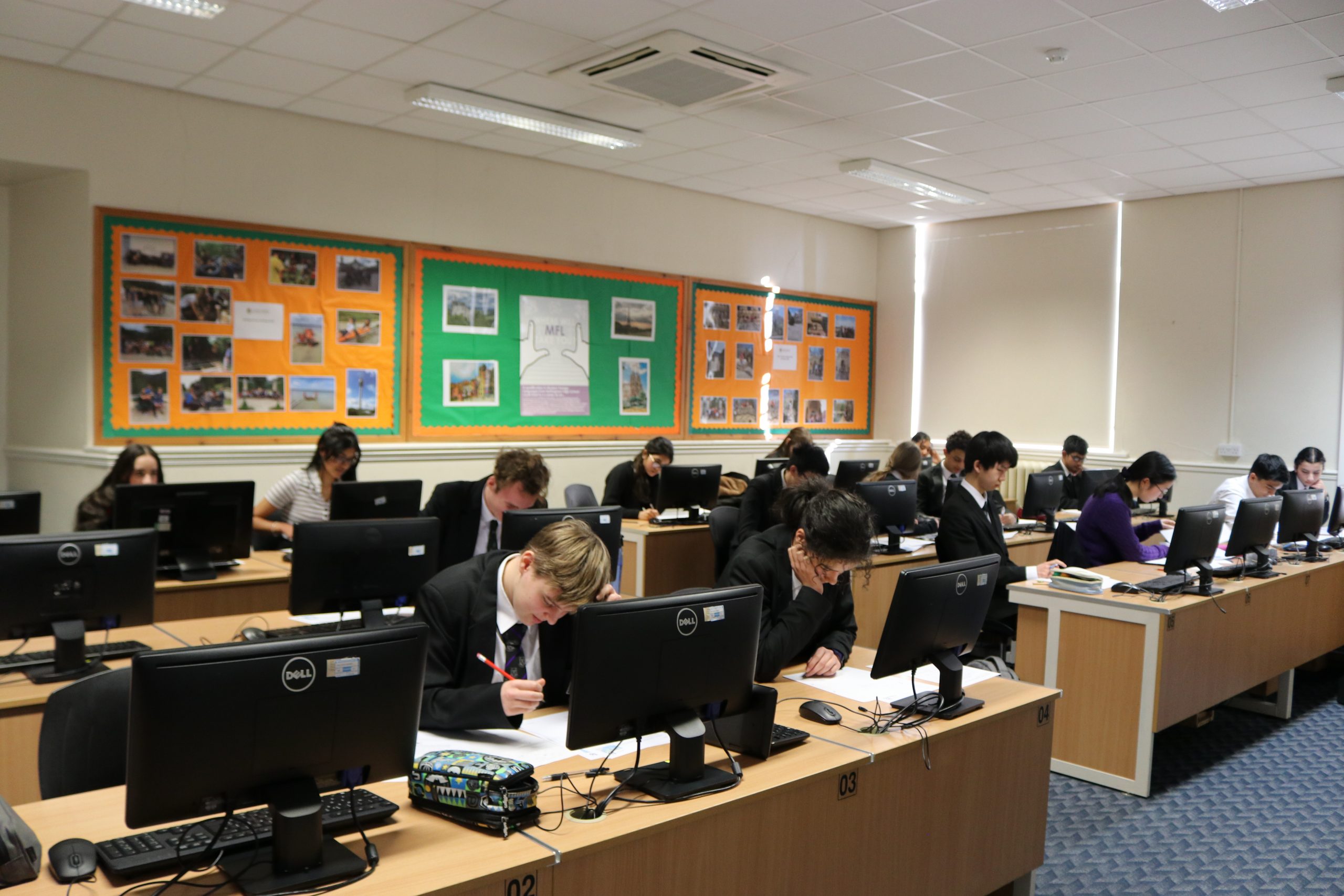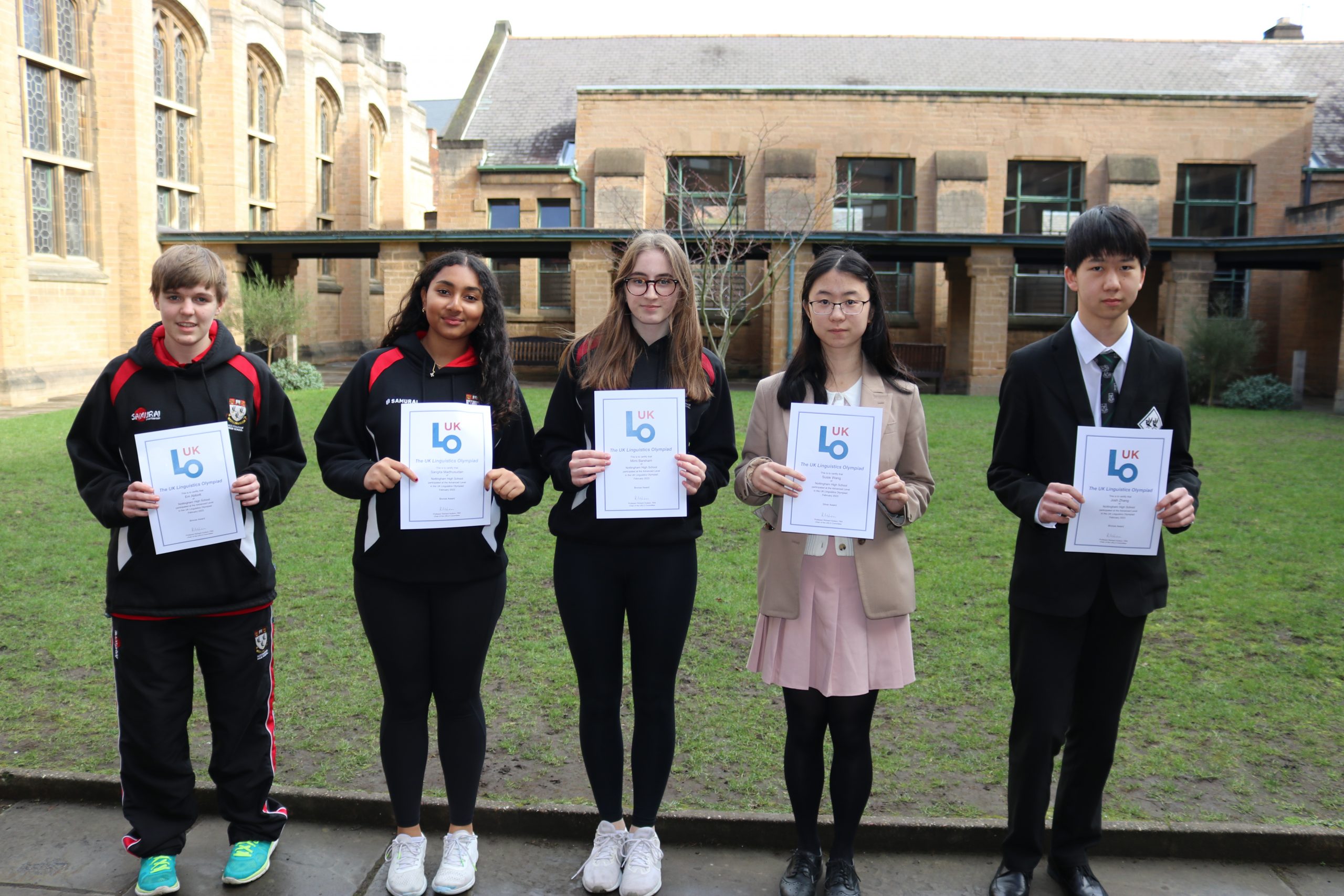Mimi B and Sangita M
On the 7th of February 2023, we took part in the UK Linguistics Olympiad alongside around 20 other students from years 10-13. It was an enriching experience which required a plethora of skills that we were fortunate to develop and put into practice. This included a combination of mathematical skills (such as pattern recognition) as well as creativity and the ability to think outside the box. We were also able to explore various cultures (through the inclusion of indigenous languages) and apply our own knowledge having been multilingual from a young age. The challenge began at 9am, where we were allocated 2 and ½ hours to decode 5 languages we hadn’t previously encountered: Albanian, Lardil, Meroitic, K’iche’ and Filomeno Mata Totonac. These languages used a variety of alphabets which we were unfamiliar with, making the challenge all the more enthralling. Ranked in order of difficulty (with Albanian the easiest and Filomeno Mata Totonac the hardest), tasks entailed translating phrases and pronouns as well as writing in foreign scripts. Albanian was the easiest of the 5: we were given 21 sentences with different conjugations and translations (not in order). The challenge required us to distinguish grammatical conventions and match phrases with their relevant translations, allowing us to complete the subsequent translation exercise between the two transcripts. We then proceeded to attempt Lardil (an indigenous Australian language) where the style of questions was slightly different. We were given pronouns referring to gender and a number of the people and had to figure out how these worked. In order to complete the next exercises, we applied this newfound knowledge to scenarios where the pronouns were unknown.

Having completed Lardil, we moved on to Meroitic (a language spoken in modern Sudan and Egypt). This was particularly challenging as the alphabet used is similar to hieroglyphics (very dissimilar to English). We were given 12 words in Meroitic script, along with their Roman-script and English translations. This escalated the challenge as we were now dealing with 2 unknown languages. We had to complete another match-up task which aided our completion of the following exercise: transcribing the Meroitic into Roman script. The penultimate challenge was K’iche’ (a Mayan language spoken in Guatemala). We found this the most intellectually rigorating due to the curious punctuation of the phrases. We were provided with several sentences and their translations and had to detect patterns within K’iche’ to proceed with the next part of the task: translating complex sentences. The final task was decoding the complexities of Filomeno Mata Totonac (spoken in Mexico). We particularly enjoyed this as the language uses ideophones to convey meaning. We were given examples of these and translations to interpret and match with similes. Overall, we both found the UKLO to be an extremely beneficial challenge as it was unique to other olympiads that we have completed (such as biology) and an unconventional way to test our linguistic skills. We are fortunate to have furthered our ability to detect patterns in language (requiring a more logical way of thinking) and make connections between phrases (engaging our creative sides). We are grateful to the Modern Foreign Languages department for giving us the opportunity to challenge ourselves outside of the classroom and develop new skills which we can implement back into language lessons.

This year’s test has been noted by the Chairman of the UKLO as being the most challenging on record! However, Mimi B (Y11), Sangita M (Y11), Josh Z (Y10) and Em A (Y11) all achieved a Bronze certificate, and Susie W (Y13) achieved a Silver certificate.




